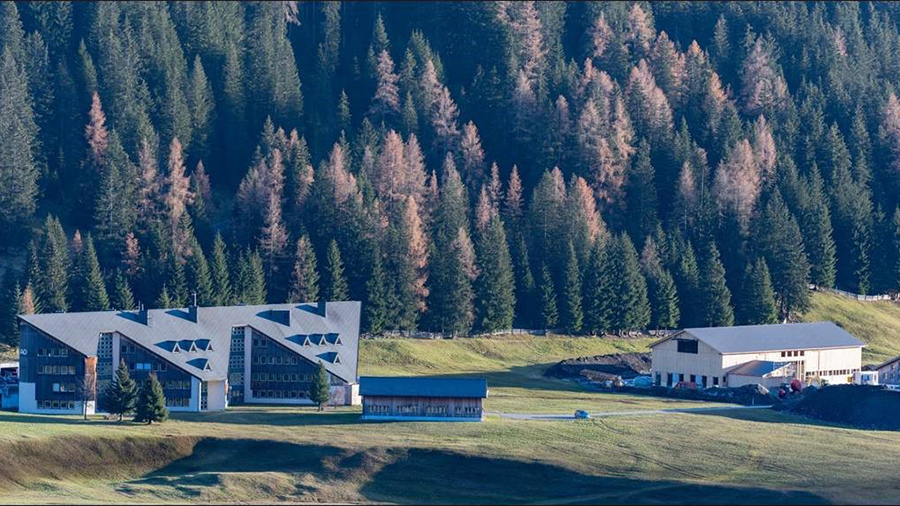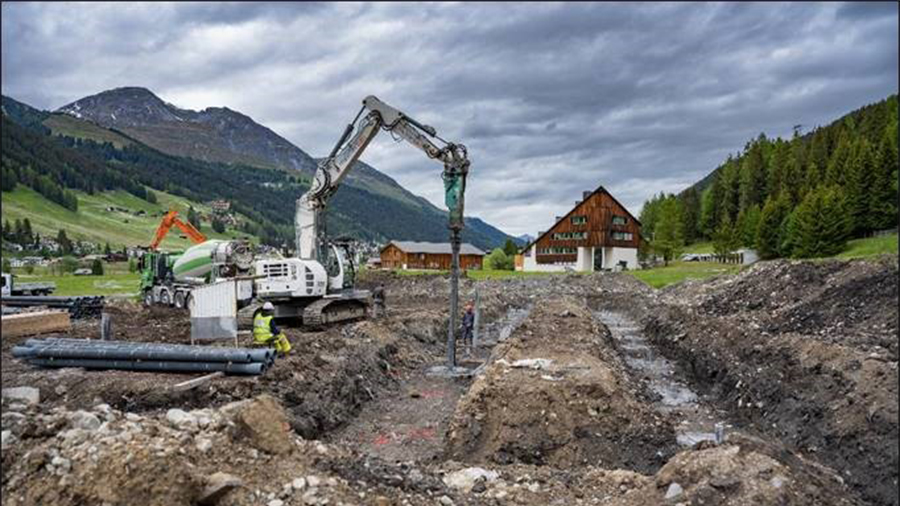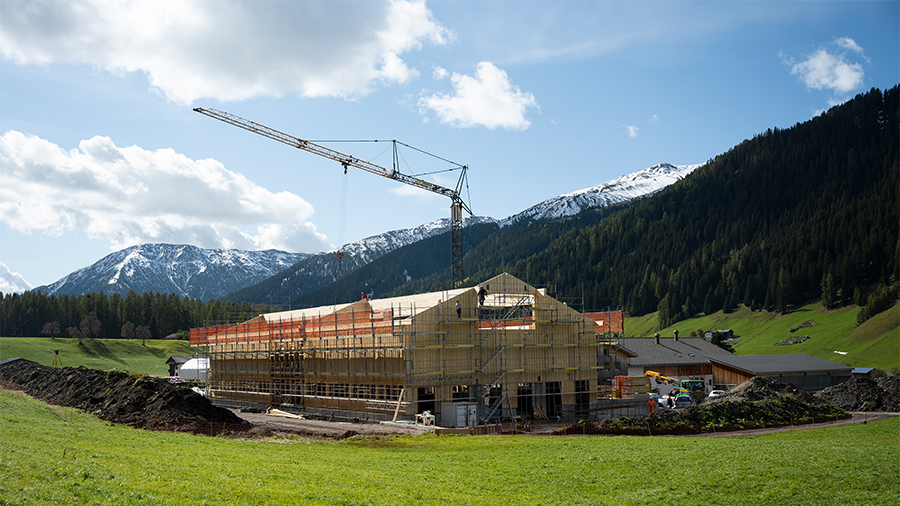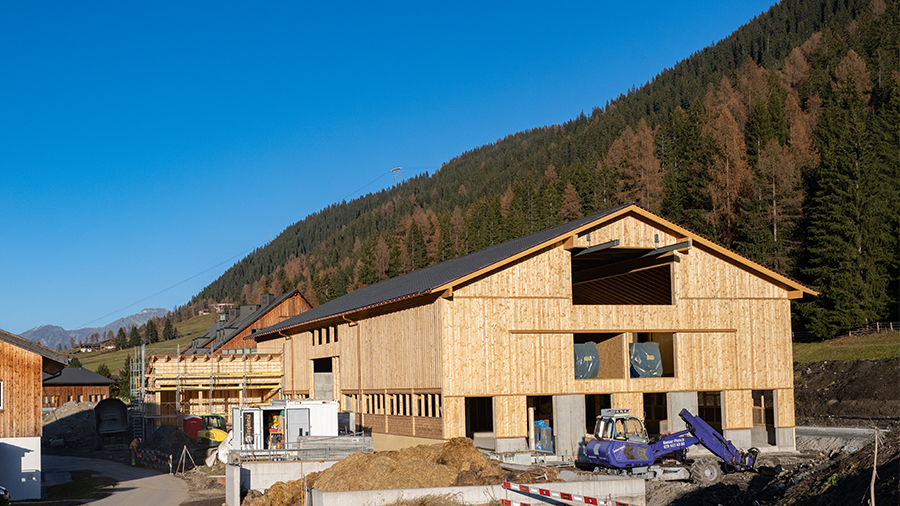A newly built home for the AO sheep

The "AO sheep"—a flock of specific-pathogen-free (SPF) sheep for preclinical research purposes—are about to move into new quarters. Work on their future home, a purpose-built animal stable, is to be completed soon. The new structure stands directly adjacent to the AO center.
SPF animals are free of a range of pre-defined diseases. This reduces the possibility that they might fall ill during a study and debilitate the research data, says Stephan Zeiter, Program Leader Preclinical Services and Focus Area Leader Preclinical Surgery at the AO Research Institute Davos (ARI): "Using SPF animals therefore improves the quality of the research," he explains. It also has a positive effect on animal welfare, the veterinarian adds: "It means that overall, we need fewer sheep for our research."
SPF sheep are crucial for many preclinical studies, both at the ARI and at other institutions. But unlike SPF mice or rats, they aren't available from specialist breeders. That's why the ARI, under the supervision of Urban Lanker, Manager Preclinical Facility and a farmer himself, has been building up its own flock of SPF sheep over the past few years. It's the only herd of its kind outside of North America. "However, establishing a SPF sheep flock, which initially involves delivery by Caesarian section, is only one part of the problem," Lanker says. "Keeping them free of pathogens is another challenge altogether."
The new stable will ensure that the sheep remain separate from other animals that are potentially infected. A biosecurity barrier including an air shower, changing rooms for staff, and easy-to-clean walls and installations will prevent passive disease transmission through humans or equipment.
The facility has been built to current standards of animal welfare. It includes, for example, a spacious open-air enclosure designed to occupy the animals in a natural way. On the inside, a ventilation system adapts to the temperature conditions outside: during warm summer weather, it can quickly bring in fresh air, while much colder winter air can be introduced to the stable more gradually.
The lighting concept ensures that the animals benefit from a natural light cycle, just as they would if they were kept mainly in the open. A biogas unit will ferment the animals' manure and produce heat as well as sufficient electrical energy both for the stable itself as well as for the ARI's preclinical facility.
On its exterior, the building is already complete. On the inside, the electricity and ventilation systems are currently being installed. "If all goes to plan, we will move the first sheep into their new stable by the end of summer," says Lanker. "That's when we'll be able to see for ourselves for the first time whether our concept actually works."
It's something that can't simply be taken for granted—designing and building a facility for such a unique purpose required breaking new ground in many aspects. It involved, as Lanker puts it, a constant learning curve for everyone involved.
"I am extremely happy to see this project come to fruition," says Prof R Geoff Richards, Director of ARI and Executive Director AO Foundation R&D. "Not only will we have the first SPF flock in Europe. In addition, our biogas project will reduce methane output to the atmosphere from our animals while at the same time providing renewable green energy and heat to our research buildings. We will invite local schools on a yearly basis to visit our biogas unit to help motivate the young generations to the power of renewable energy and to encourage local farmers to consider this process for their farms."
"Once the flock has been established in its new quarters, the next step will be to increase its size. We are expecting two further rounds of caesarians before the flock can begin to largely reproduce naturally," says Zeiter. At capacity, the new stable will house 240 sheep and yield around 100 animals per year for research. They will be used not just at ARI but also at a number of other interested institutions.




